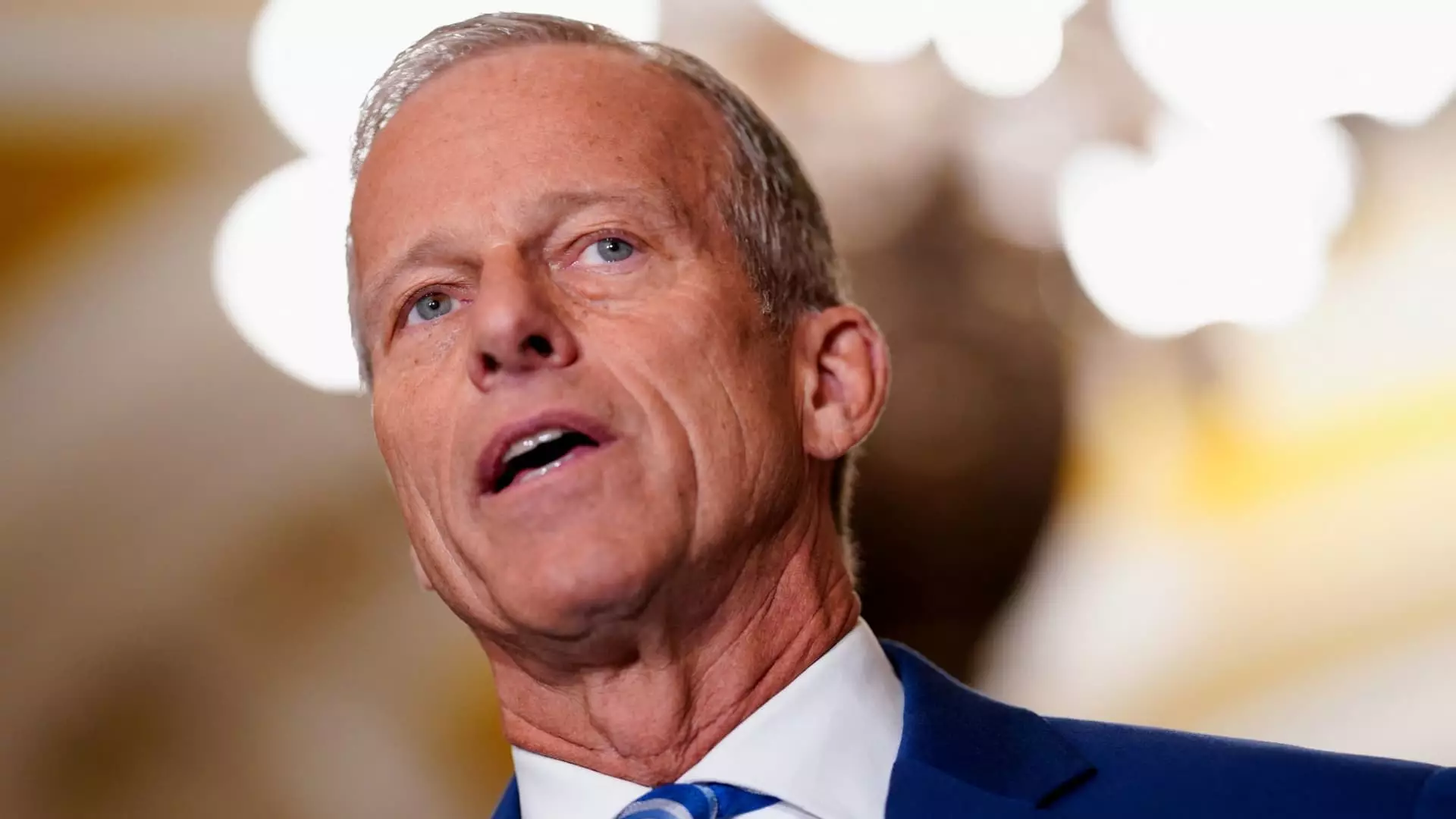In a scene teetering on political chaos, the Senate narrowly advanced President Donald Trump’s gargantuan spending bill, a move better described as a fragile victory rather than an outright success. The 51-49 procedural vote barely pushed the bill forward, exposing the intense fractures within the Republican Party and the near-impossible balancing act required to pass such a massive legislative package. While the headline may celebrate progress toward sending this “big, beautiful bill” to Trump’s desk, the reality is far messier: the deep ideological divisions on both sides highlight a fractured Congress struggling to govern effectively.
This narrow margin was only achieved after hours of tense negotiations and reluctant concessions by GOP senators who initially opposed the bill. Senators like Mike Lee, Rick Scott, Cynthia Lummis, and Ron Johnson held firm “no” votes before ultimately conceding, underscoring a significant undercurrent of resistance within their ranks. That Vice President JD Vance’s tie-breaking vote was ultimately unnecessary speaks more to the precariousness of the coalition than any newfound unity. Republican Majority Leader John Thune’s promise to “get the bill to Trump by July 4” now seems like an optimistic deadline hanging by a thread.
Democratic Resistance Reveals Senate Dysfunction
On the other side, Democrats remain bluntly resistant, with Senate Minority Leader Chuck Schumer’s demand to read the bill aloud in its full 940 pages symbolizing more than just procedural delay tactics; it’s a pointed rebuke of the bill’s opacity and legislative recklessness. This isn’t just a battle over policy but a clash about transparency and governance standards. Forcing Congress to wade through near a thousand pages in real-time exposes a system overwhelmed by the sheer scale and complexity of modern legislative packages. This is a Senate unwilling or unable to subject monumental decisions to the kind of careful scrutiny democracy demands.
What’s troubling here is the normalization of these sprawling “mega-bills” that juggle dozens of issues in one unwieldy package, pressuring lawmakers to either swallow entire policy mixes or face political backlash for obstruction. Such omnibus legislation erodes accountability, muddles policy clarity, and empowers special interests to pile in competing priorities under the cover of night. The prolonged procedural vote was less about finalizing a bill and more about theatrical chess moves reflecting how gridlock and spectacle trump reasoned debate in the modern Senate.
The Reckless Ambitions Behind the Bill
The Senate’s holdouts are not merely obstinate figures; their resistance points to substantive objections about the bill’s sweeping policy changes, especially the drastic Medicaid cuts baked into the package. These cuts threaten the health and stability of millions of vulnerable Americans and signal a troubling prioritization of budget arithmetic over human welfare. Washington’s penchant for austerity masquerading as fiscal responsibility again risks forsaking the social contract that defines progressive governance within a liberal democracy.
House Republicans’ anticipated pushback on similar grounds compounds the problem further. With a slim majority in both chambers, leadership cannot afford to lose even a handful of votes, casting doubt on the bill’s likelihood of seamless passage. The tension between party discipline and individual lawmakers’ responsibility to their constituents is stoked by this bill’s wide-ranging and contentious content. Passing it at the cost of internal cohesion may yield legislative victory but political damage at a moment when public trust in Congress is at an all-time low.
Trump’s Political Stakes and the Peril of Deadlines
Trump’s vocal pressure to pass the bill by the symbolic July 4 deadline adds an unnecessary layer of urgency to an already fraught process. Characterizing failure as “the ultimate betrayal” leverages political loyalty in a way that risks further alienating moderate Republicans and independent voters who expect measured policy solutions rather than circus theatrics. Leadership’s fixation on symbolic victories undermines the solemn deliberation legislative governance requires.
This deadline-driven push highlights a broader trend in American politics where optics and media spectacle often overshadow substantive policy outcomes. The enticement of a quick win for Trump’s legacy risks compromising the bill’s integrity and ignoring the very real policy ramifications, from Medicaid cutbacks to domestic spending priorities. Such haste threatens to entrench dysfunctional governance patterns where political considerations trump thoughtful, evidence-based policymaking.
The Senate’s narrowly won vote thus represents more than a procedural milestone—it lays bare the erosion of political consensus in an era of hyper-partisanship and legislative spectacles. The real challenge lies ahead: navigating a deeply divided Congress, balancing competing priorities, and ensuring policies serve people rather than political agendas. The bill’s fate will reflect whether American democracy can sustain its promise of inclusive, deliberative governance or buckle under the pressures of urgency and spectacle.


Leave a Reply